This report can be cited as:
KAPITA. "Transportation Sector in Iraq: Roads and Railways Scene Overview”. August 21, 2022. http://bit.ly/3UERnek
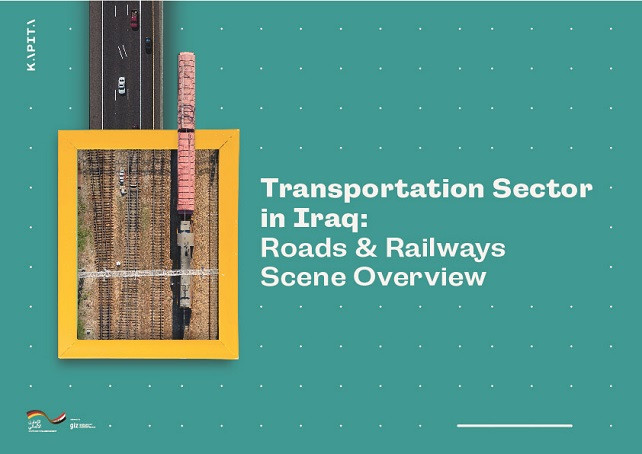
Transportation Sector in Iraq: Roads and Railways Scene Overview
Transportation and mobility are pathways to urbanization, as addressing mobility challenges are key to accessing healthcare, education, and services, as well as promoting trade and commerce. The road network and the railway system in Iraq have been in existence since the rule of the Ottoman Empire during the early 1900s, currently, Iraq has a network of roads and railways that is in need for rehabilitation and improvement.
The Ministry of Transport controls the transportation in Iraq, road transport is managed through the State Company for Travelers and Delegates Transportation and the State Company for Land Transport, and the railways are managed by the Iraqi Republic Railways.
In this report, we thoroughly examine land transportation, both road and railway in Iraq, starting from the history of both roads and railways and how they developed through the years, the companies involved in the sector, the number of passengers and cargo loads moved, to total revenues and wages. Lastly, including recent projects and developments, major issues, and recommendations for both modes of transportation.
Public transportation was a great asset in Iraq until 2003 when the public started depending more on private transportation, this was coupled with governmental negligence of public transportation infrastructure. As shown in this report, the number of imported private cars is increasing annually, reaching 7.03 million cars in 2020, 35% (2,479,898 cars) of them are located in Baghdad. Meanwhile, the State Company for Travellers and Delegates Transportation only has 846 operative buses.
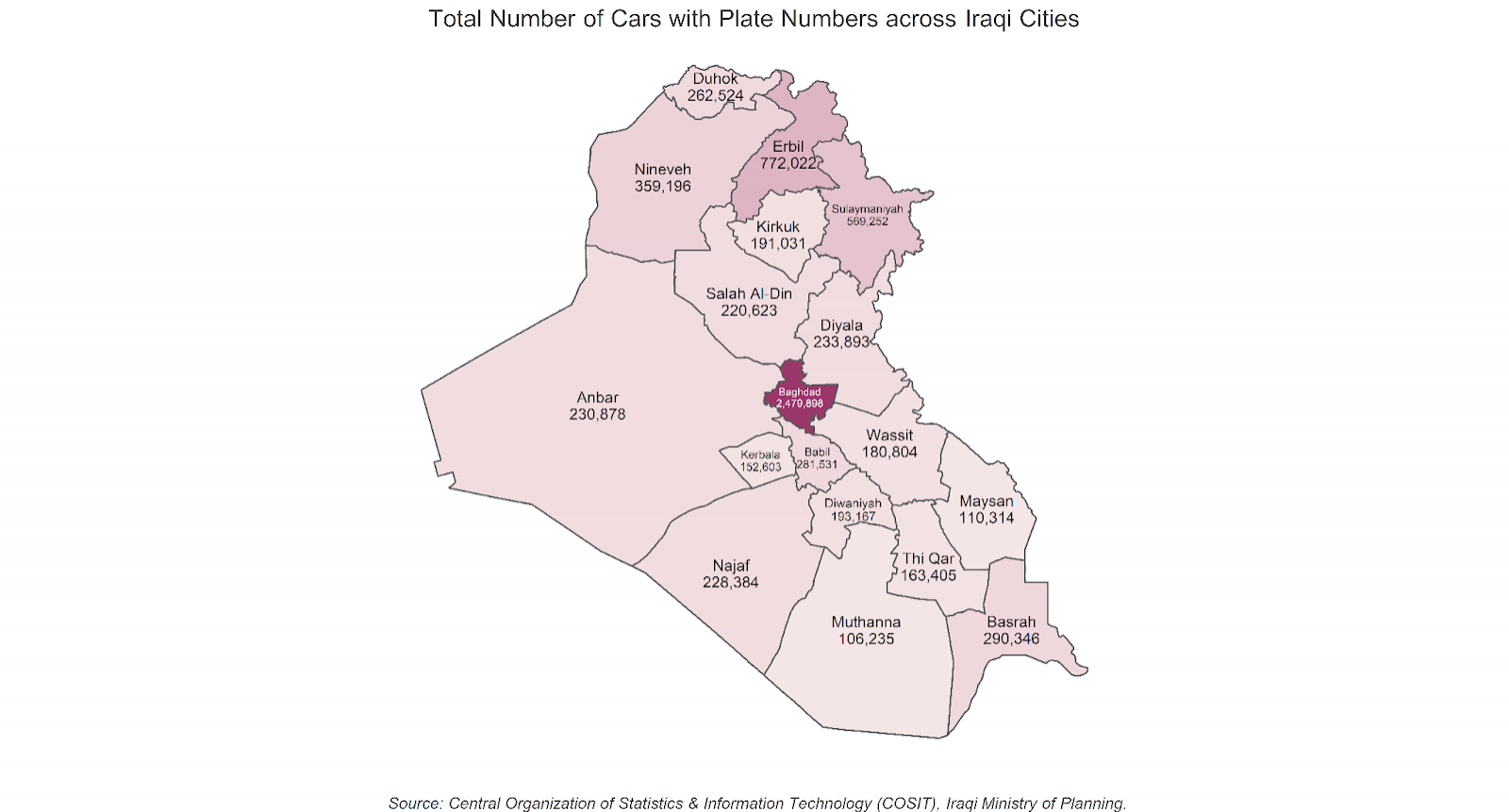
The COVID-19 pandemic has taken its toll on the transportation sector, as the report further shows, the State Company for Travelers and Delegates Transportation has seen a drop in its revenues in 2020, however the State Company for Land Transport continued in sustaining its revenues throughout the COVID-19 crisis with 67.5 billion IQD revenue in 2020.
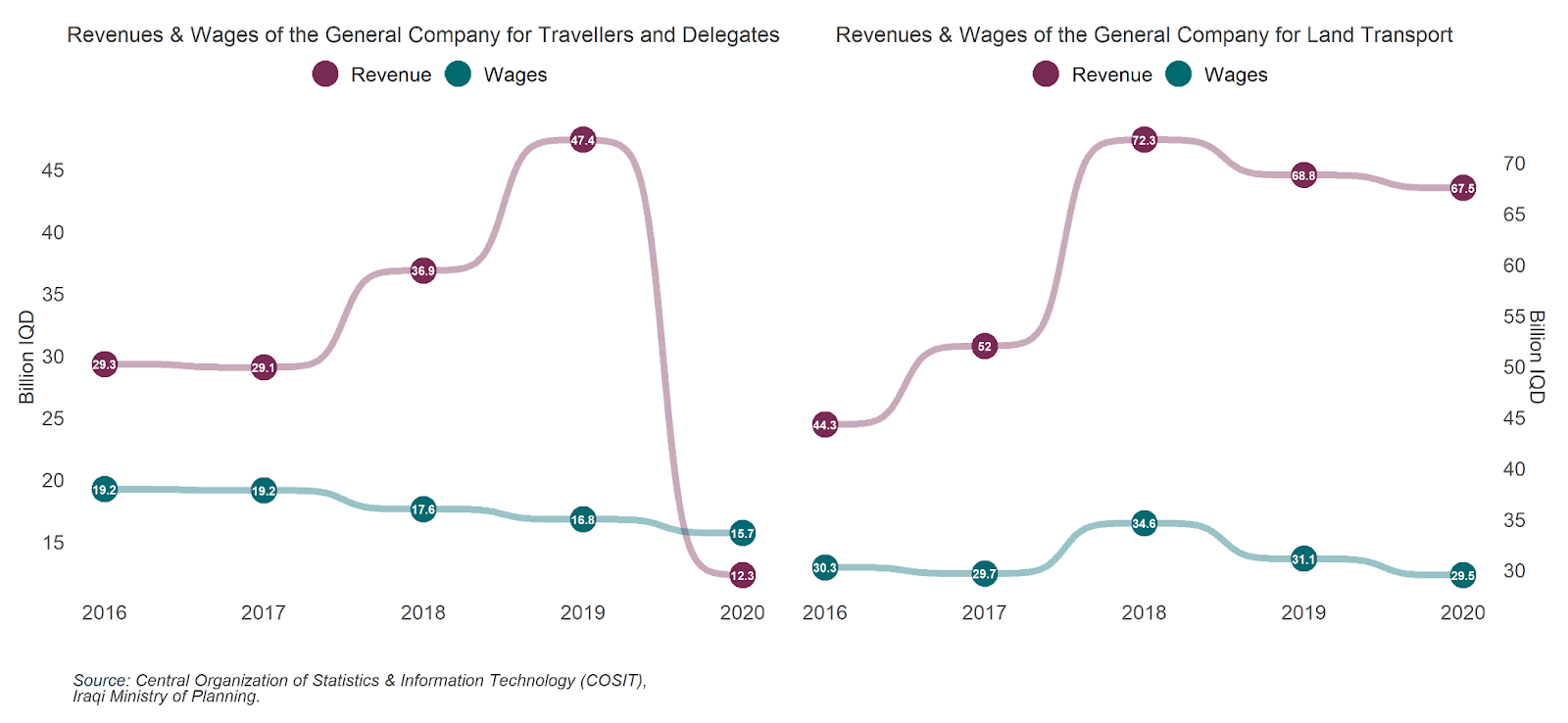
The Iraqi railways run a total length of 2,893 km, covering most of the country. Recently the IRR has been focusing on transporting goods and cargo with a great improvement to the amount of goods transported between the years 2019 and 2020, from 372 thousand tons to 1,293 thousand tons. That improvement however was not translated into more revenue, as the revenues for 2020 were 4,221 million IQDs while year 2019 reported 5,206 million IQD in revenues from goods transportation.
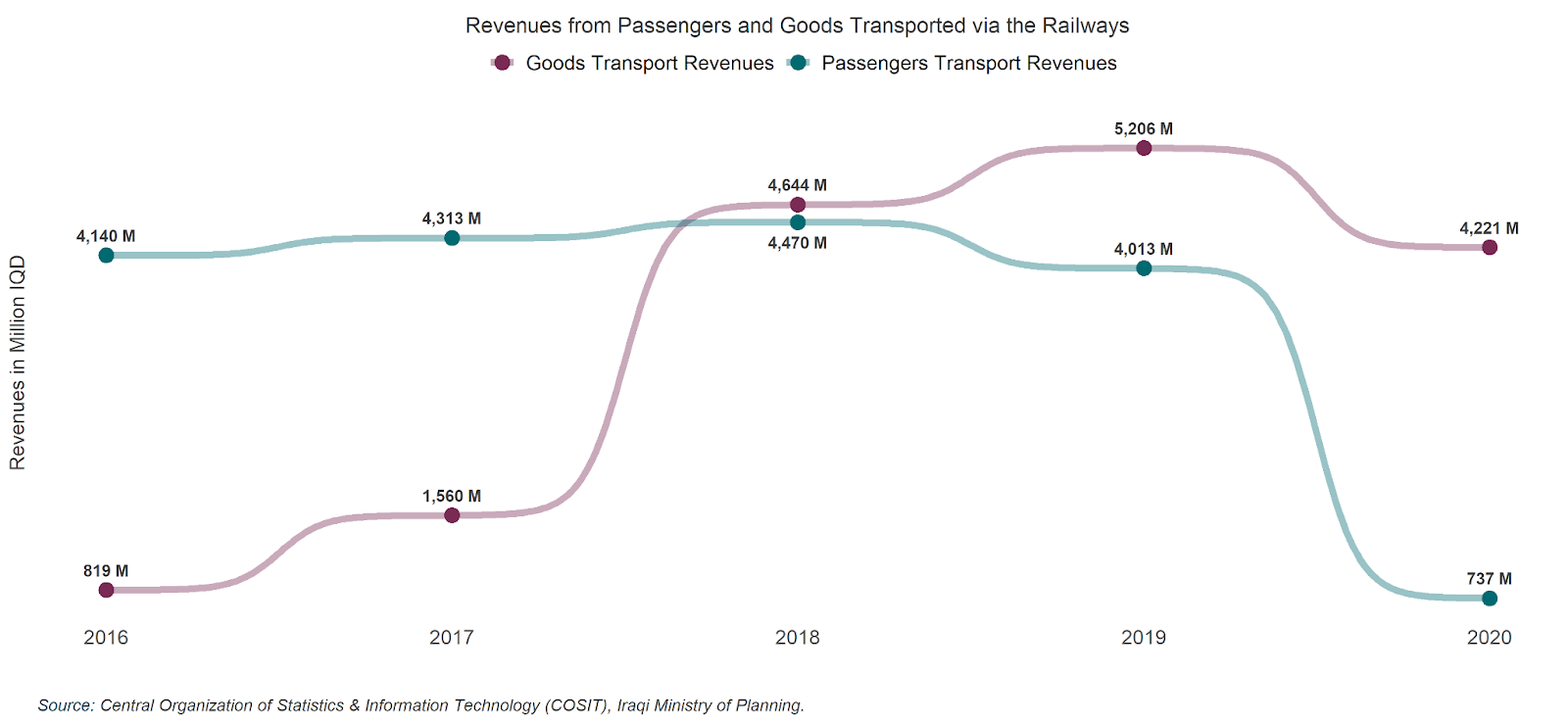
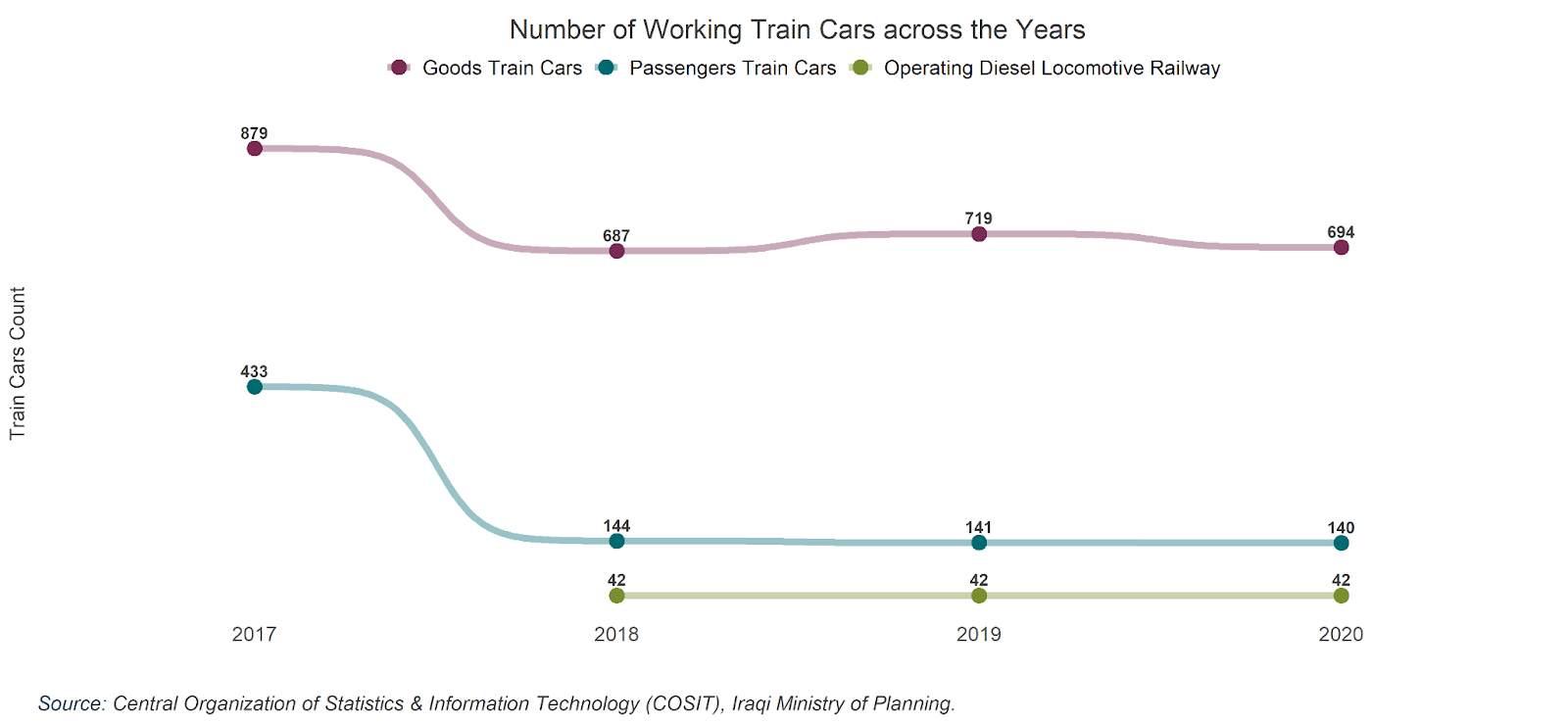
This report can be cited as:
KAPITA. "Transportation Sector in Iraq: Roads and Railways Scene Overview”. August 21, 2022. http://bit.ly/3UERnek